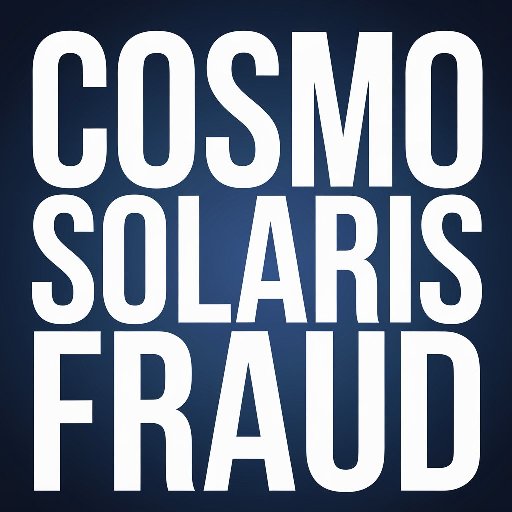
In an era when renewable energy is more relevant than ever, solar installation companies are a large part of helping homeowners find sustainable energy solutions.
Unfortunately, not all companies in this booming industry have the integrity you might expect. For instance, Cosmo Solaris, a solar installation company operating in Texas and Virginia has recently been accused of and is being investigated for fraud. Cosmo Solaris, also known by its parent company’s name, WNK Associates, has been accused of deceptive practices that violate the trust of its customers and infringe on Solar Insure’s intellectual property.
The Emergence of the Issue
The issues with Cosmo Solaris began to surface in late 2023 when Solar Insure’s compliance team discovered disturbing information about WNK Associates, Cosmo Solaris’s parent company.
At the time, WNK Associates was embroiled in a lawsuit filed by DirectTV for alleged fraud, including logo infringement and impersonation of DirectTV. WNK reportedly contacted customers under false pretenses to steal money through prepaid gift cards. Their activities raised red flags for Solar Insure, leading us to examine Cosmo Solaris more closely.
Our decision was also influenced by the discovery that Cosmo Solaris was using Solar Insure’s products and marketing materials without authorization. The situation escalated when investigators discovered that Cosmo Solaris had been altering these materials to remove our logo, and they were falsely representing an ongoing partnership to potential customers.
Trademark Infringement and Unauthorized Use of Marketing Materials
Cosmo Solaris’s most egregious action was their unauthorized use of Solar Insure’s proprietary marketing materials, including our verbatim business content, with our logo removed. On April 26, 2024, we identified our content on page 8 of Cosmo Solaris proposals, raising serious concerns about trademark infringement.
The unauthorized use of marketing materials breaches trust and violates several state laws, including Texas Insurance Code Section 701.001 and the Deceptive Trade Practices-Consumer Protection Act (DTPA).
These regulations prohibit fraudulent editing or misusing of insurance documents and marketing materials. By removing Solar Insure’s logo and presenting these materials as their own, Cosmo Solaris misled consumers and engaged in deceptive practices that could lead to substantial legal consequences.
For the record, Cosmo Solaris is not authorized to utilize our product, logo, marketing, or anything associated with our company. Customers who have purchased Cosmo Solaris systems do not have Solar Insure protection.
The Cease and Desist: A Call Ignored
Solar Insure issued a cease-and-desist letter to Cosmo Solaris in response to these alarming discoveries on April 24, 2024. We demanded that Cosmo Solaris immediately cease the unauthorized use of Solar Insure’s trademark and marketing materials.
Although Cosmo Solaris acknowledged the cease-and-desist, it continued to use the altered materials. It kept the Solar Insure logos on its EnergySage profile until May 2024.
Despite strict warnings, Cosmo Solaris’s blatant disregard for legality shows the audacity with which it conducted its business. After we applied considerable pressure, they finally removed the unauthorized materials from their contracts, website, and EnergySage profile.
However, the damage had already been done, with numerous homeowners potentially misled by the company’s false representations.
The Larger Implications of Cosmo Solaris’s Actions
Cosmo Solaris’s fraudulent activities have far-reaching consequences, not only for the company but for the solar industry at large.
A company engaged in deceptive practices undermines consumer confidence in the entire industry. Homeowners who invest significantly in solar energy rely on their provider’s integrity for honest, accurate information. Breaking this trust can lead to widespread skepticism and reluctance to adopt a solar solution.
Cosmo Solaris and WNK Associates are facing severe legal repercussions. By continuing to use Solar Insure’s marketing materials and falsely representing their partnership, they may have violated the Deceptive Trade Practices-Consumer Protection Act, which prohibits companies from misrepresenting their products’ sponsorship, approval, or affiliation.
The ongoing legal battles with DirectTV only add to the growing list of concerns surrounding WNK Associates and its subsidiaries.
Solar Insure’s Response and the Path Forward
Solar Insure has taken decisive action to protect our reputation and notify affected consumers of the situation.
We have submitted our findings to multiple state Attorneys General and started legal proceedings to seek remedies for the unauthorized use of our marketing materials. This action included a letter to Texas Attorney General Ken Paxton on August 9, 2024, outlining the potential violations of limited warranty law and our steps to address the situation.
In this letter, we detailed the timeline of events, including our discovery of how our materials were being used without authorization, our issuance of the cease-and-desist letter, and our ongoing efforts to obtain a list of affected homeowners. As of August 6, 2024, Cosmo Solaris had yet to provide this information, further complicating efforts to rectify the situation.
The Role of Regulatory Authorities
The involvement of state Attorneys General and other regulatory authorities will be necessary to address Cosmo Solaris’s actions.
These bodies can investigate potential consumer protection violations and enforce penalties against companies with fraudulent practices. By reporting violations and cooperating with authorities, Solar Insure safeguards consumer interests and ensures that justice is served.
Regulatory authorities must swiftly and decisively act to hold Cosmo Solaris accountable, provide affected customers with a measure of justice, and send this strong message to other companies in the solar industry: Such behavior will not be tolerated.
Conclusion: A Cautionary Tale for the Solar Industry
The case of Cosmo Solaris serves as a cautionary tale for the solar industry. As the demand for renewable energy continues to grow, so does the providers’ responsibility to operate with transparency and integrity.
This case emphasizes the importance of thoroughly researching companies and their business practices for homeowners considering solar energy solutions before making such a sizable investment. It also indicates the need for stricter regulations and oversight within the industry to prevent similar situations in the future.
Solar Insure’s proactive response demonstrates our commitment to ethical practices and consumer protection. Taking legal action and employing stronger compliance measures sets a standard for how companies should respond to fraudulent activity within their ranks.
As this story continues to unfold, it highlights how ethical practices and consumer trust must be integral to the clean energy industry. We can continue to benefit the environment and the consumers we serve by championing these values.


